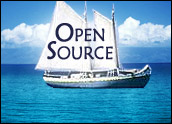
The Free Software Foundation is releasing the long-awaited first draft of GNU General Public License Version 3 today at the Massachusetts Institute of Technology in Cambridge, Mass.
Legal experts are already wrangling over the possible revisions to the most popular open-source license in the world. About two-thirds of all open-source licenses fall under the GPL.
Richard Stallman, the license’s original author, and Eben Moglen, the general counsel for the Free Software Foundation (FSF), authored the latest rendition.
The public debate over GPL version 3.0 is expected to include comments from 150,000 people around the world. The FSF will release a revised version later this year or early next year. The FSF said March 2007 is the latest possible release date.
Beginning the Great Debate
Black Duck Software, a maker of software compliance management solutions, is among those already quacking about the GPL draft.
Black Duck Software General Counsel Karen Copenhaver said one statement highlights a primary issue to be vetted by the community during the GPL3 review process: Does the right to share and improve software licensed under the GPL extend to end users, such as end users of a Web-based GPL application?
“In other words, is a user of a Web-based application that is based on modified GPL-licensed code entitled to request and receive the source code for the application?” she asked. “This could be one of the great debates during this process.”
An Opportunity for Clarity
Michael R. Graham, intellectual property attorney and partner with Marshall, Gerstein & Borun LLP, an IP-specialty firm based in Chicago, told LinuxInsider that the proposed revision to the GPL represents an opportunity to refine it and clarify it.
“All of us in the software development, licensing, and protection areas must view the release of the proposed GPL3 as an event of utmost importance in defining the scope and nature of software development and rights ownership,” Graham said. “However, this reconsideration will inevitably raise some key issues, alongside those which the Free Software Foundation has stated are addressed in the draft to be revealed.”
Some of the issues appear to impact legislative protection of patents and copyrights. Graham said the proposed prohibition against the use of GPL software by companies claiming patent rights against parts of that software may be a coercive provision which threatens the place of software within the current U.S. patent system and the scope of patent protection.
DRM Considerations
Similarly, Graham said, considering the use of GPL software on devices with DRM restrictions may lead to questions of the validity of GPL3 licenses if they provide for exceptions to the Digital Millennium Copyright Act.
“Hopefully the GPL3 will leave in place, too, the opportunity of software developers to utilize dual-level licensing of software — permitting both Open Source free use and commercial paid use and licensing of software,” Graham said. “However, this issue is not included by the FSF as among theissues anticipated to be covered in the GPL3.”
Finally, Graham said although ideally the various open-source licenses should not be incompatible, at present they address different concerns and types of software. He said a “one license for all software” approach would be no more desirable, and potentially much more dangerous, than the present availability and focus of the various not-always-compatible open-source licenses.



















































